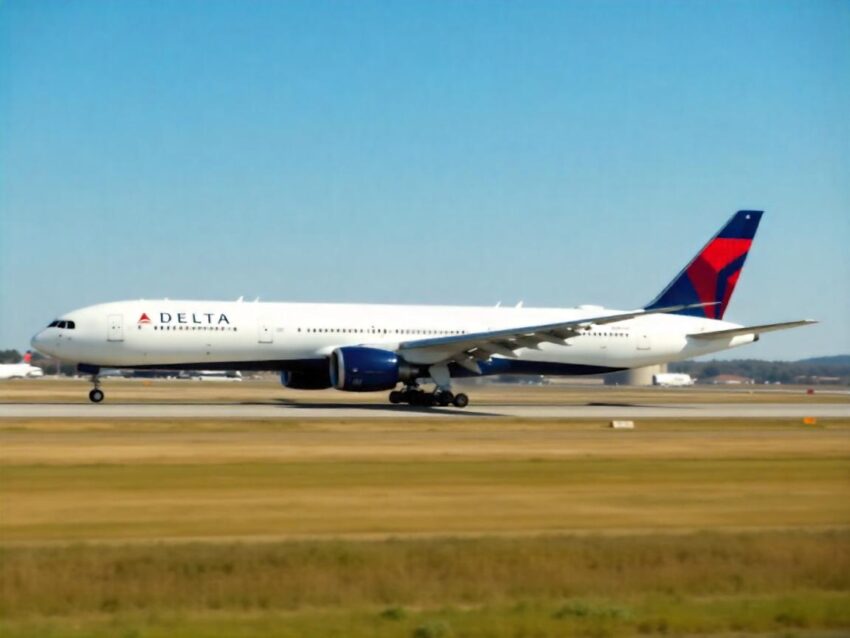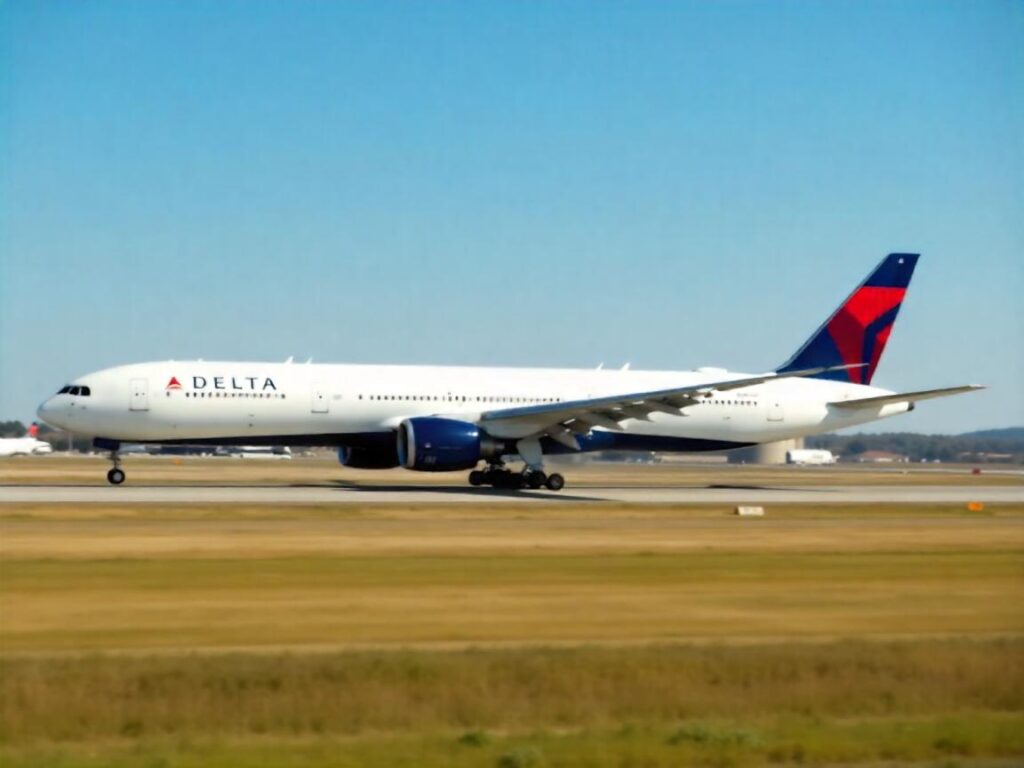Saturday, July 12th, 2025

Delta Airlines is making a bold move to reconstruct the landscape of its trans-Pacific travel with its highly anticipated non-stop service between Los Angeles and Hong Kong, marking its airline's return to the market after an eight-year break. This strategic decision reflects Delta's commitment to expanding its global reach, leveraging its extensive domestic network at LAX to draw on the growing demand for direct flights to major Asian financial hubs. By reintroducing this critical route, Delta aims to increase competitiveness in highly saturated markets dominated by established players like Cathay Pacific and United Airlines. The move not only highlights the resilience of airlines, but also demonstrates the US's continued leadership in global aviation connectivity.
After eight years of hiatus, Delta Air Line was set up for a massive comeback in Hong Kong with non-stop lax-hkg service
Delta Airlines is preparing to re-enter the highly competitive Hong Kong (HKG) market with a new non-stop flight from Los Angeles International Airport (LAX), marking its first return to the city in over eight years. Although not officially confirmed yet, reliable industry sources have shown that the Delta will be announced soon after returning to this important cross-path route, shaking the corridors of LAX-HKG and rekindling fierce competition in the long-distance market.
Delta's strategic re-entry into Hong Kong
Delta Air Lines, which left the Hong Kong market in 2018, is preparing to restart a 7,260-mile (11,684 km) route between Los Angeles (LAX) and Hong Kong. The service will be operated using the airline's state-of-the-art Airbus A350-900 aircraft. It is known for its long distance capabilities and passenger comfort. However, Delta has not yet disclosed specific details regarding flight frequency or official launch timelines.
This decision to revive the LAX-HKG route reflects changes in the Delta Asia-Pacific strategy. Previously, much of the traffic to the region was routed through Seoul Incheon (ICN) as part of a joint venture with Korean Airlines. However, this upcoming return will focus new emergingly on the direct connection between Los Angeles and the major Asian hubs.
LAX-HKG Market: A fiercely competitive situation
The Los Angeles to Hong Kong route is already one of the most saturated long-haul markets, with United Airlines (UA) running two daily flights and Cathay Pacific (CX) offering three daily services. American Airlines (AA) previously provided routes, but was cancelled due to poor performance even before the pandemic.
Delta re-entry raises important questions about strategies to compete on this busy route. Unlike United and Cathay Pacific, which have a robust regional network and strong partnerships, the Delta doesn't have the same level of connectivity from Hong Kong. Unlike Cathay Pacific, which leverages its wide regional network and one-world partnership across Asia, Delta relies primarily on its own network to drive traffic to Hong Kong.
Strategic shift from Seattle to Los Angeles
Delta's decision to launch Hong Kong services from Los Angeles rather than Seattle is a notable change in its approach. While Seattle has historically been an important hub for the Delta's trans-Pacific business, the airline appears to be leveraging LAX's large domestic network, which operates over 150 daily departures. This strategic change may reflect long distances and high passenger demand for the LAX-HKG route, and attempts to optimize the use of the Airbus A350-900 fleet.
However, this move is not without risk. As LAX has already experienced significant competition on this route, Delta needs to make sure the service is outstanding in both product and pricing. Additionally, airlines may need to adjust their focus based on freight demand and direct transport from Los Angeles as premium travel to Hong Kong has declined in recent years.
Future challenges and opportunities
Delta's return to Hong Kong shows optimism to expand its Asian network, but airlines face major challenges as they navigate the region's evolving geopolitical landscape. Hong Kong's position as a financial and tourism hub has been affected by political change and social unrest since 2019, leading to a decline in demand from premium US tourists. These factors create uncertainty regarding the profitability of nonstop services to the city, particularly when considering the limited connectivity options of the Delta from Hong Kong to other major Asian markets.
Additionally, as airlines continue to manage the fleet of Airbus A350 and A330 aircraft, reintroduction of the Hong Kong route could put a strain on Delta's fleet resources. The A350-900 can operate the LAX-HKG route efficiently, but with increasing competition with these aircraft, the Delta may need to reevaluate its long-range networks to ensure sufficient capacity for other international routes.
The future of Delta's trans-Pacific strategy
As Delta sets out this major return to Hong Kong, it is clear that airlines are recalibrating their cross-Pacific approach. With Lax currently positioned as the central gateway for US-Asia Travel, the revival of Delta's Hong Kong service marks a pivotal moment with a broader strategy. Whether this is a long-term shift from Seattle to measure demand from short-term testing depends on how the airline works on this route and its ability to capture both local and regional traffic.
The LAX-HKG service is also a litmus test for Delta's broader strategy in Asia. As global markets begin to recover from the effects of the pandemic, airlines will need to adapt to changing demand patterns, and premium and leisure travel will slowly return to pandemic levels. The success of this route relies heavily on Delta's ability to leverage Los Angeles' diverse and vast markets, attracting both business and leisure travelers while still remaining more competitive than established carriers such as Cathay Pacific and United Airlines.
Delta Air Lines is set to rebuild its trans-Pacific trip with non-stop flights from Los Angeles to Hong Kong back, marking its first service to the city in eight years. The move highlights its focus on expanding Delta's global network and competing in high-demand Asian markets.
In conclusion, Delta re-entry into Hong Kong on a non-stop flight from Los Angeles reflects both calculated risks and potential opportunities. The focus of airlines on leveraging domestic networks and fleet efficiency must address the challenges posed by competition, limited traffic connectivity and shifting geopolitical dynamics, but it could provide the framework needed to make a successful comeback.



